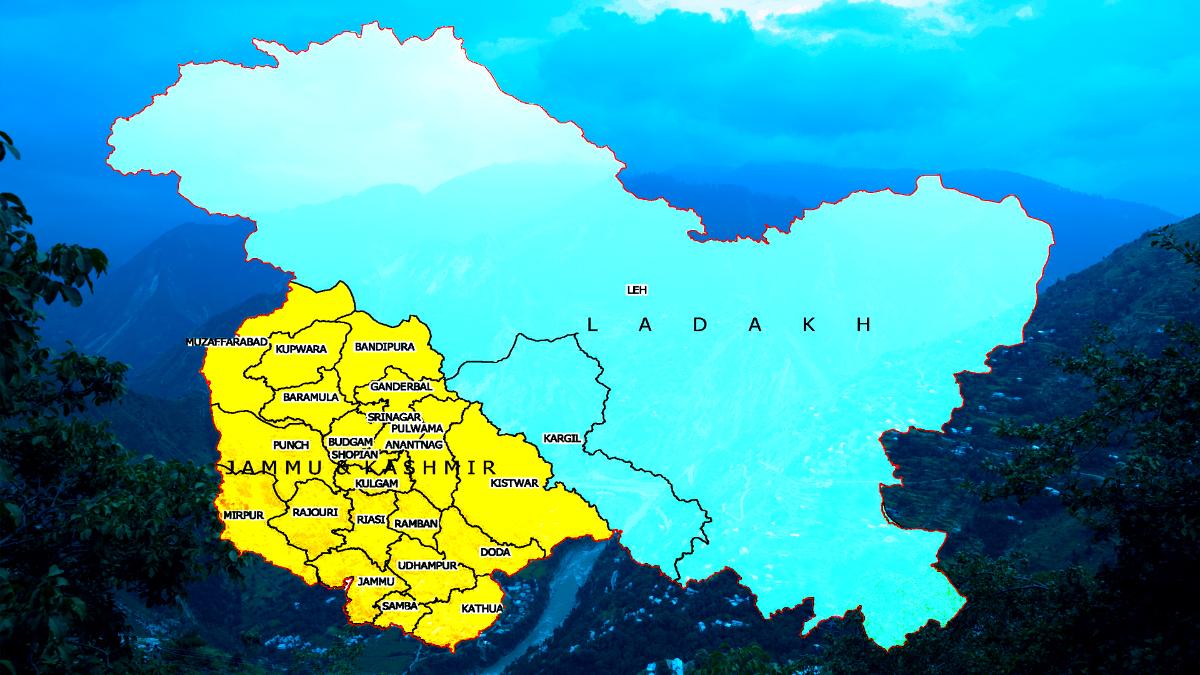Panel may give report in one year
SC seats to be rotated, STs to get reservation
Sanjeev Pargal
JAMMU, Mar 6: Silencing the critics who had been targeting the BJP for delay in setting up of Delimitation Commission, the Central Government today ordered constitution of three-member Panel headed by Justice Ranjana Prakash Desai, a retired Judge of the Supreme Court for delimitation of Assembly and Parliamentary constituencies in the Union Territory of Jammu and Kashmir and North Eastern States.
An order to set up the Delimitation Commission for Jammu and Kashmir was issued by the Union Ministry of Law and Justice.
Though the order didn’t mention the time period in which the Delimitation Commission will submit report, it said the appointment of Justice Desai will be for a period of one year or till further orders whichever is earlier which indicated that the Commission might take an year’s time for fixing boundaries of 90 Assembly seats granted to the Legislature of the Union Territory of Jammu and Kashmir.
Two ex-officio members of the Delimitation Commission included Sushil Chandra, Election Commissioner and the State Election Commissioner of the Union Territory, who happens to be Shailendra Kumar at present.
The Commission will delimit the constituencies of the Union Territory in accordance with the provisions of Part V of Jammu and Kashmir Reorganization Act, 2019 and Delimitation Act, 2002, the Ministry of Law and Justice order said.
While splitting Jammu and Kashmir into two Union Territories through the Reorganization Act, which was approved by the Parliament on August 6 last year, the Union Home Ministry had increased Assembly seats of Jammu and Kashmir by seven taking total seats to 114—24 of which are reserved for Pakistan occupied Kashmir (PoK) while election will be held for 90 seats.
Erstwhile State of Jammu and Kashmir had 111 seats including 24 reserved for PoK while elections were held for 87 seats. With creation of Ladakh as Union Territory, four seats of the region were reduced and the Assembly was left with 83 seats. However, with increase of seven seats, J&K UT will have an Assembly of 90 seats. Two Women MLAs will be nominated to the House, which was the position earlier also.
In the previous Assembly, Kashmir had 46 seats, Jammu 37 and Ladakh four.
Delimitation of the Assembly constituencies was last held in 1994-95 during the President’s Rule when seats of the erstwhile State Assembly were raised from 76 to 87. Jammu region’s seats were increased from 32 to 37, Kashmir’s from 42 to 46 and Ladakh’s two to four. However, the delimitation was freezed in 2002 by the then National Conference Government headed by Dr Farooq Abdullah in lines with the decision taken by then Central Government headed by Atal Bihari Vajpayee.
Elections to the Legislative Assembly will be held only after delimitation of Assembly constituencies is completed.
According to sources there can be altogether different Assembly constituencies with different boundaries as it will not be binding on the Delimitation Commission to stick to the segments, which existed in previous Jammu and Kashmir State Assembly.
The delimitation of Assembly seats has become necessity as it would be treated as new Assembly altogether with reservation for Scheduled Castes and Scheduled Tribes. The Scheduled Castes enjoyed reservations in the previous State Assembly also where seven constituencies were reserved for them including Chhamb, Domana, RS Pura, Samba, Hiranagar, Chenani and Ramban, all in Jammu region, while STs had been denied political reservations.
“The STs will get political reservations for the first time in the history of Jammu and Kashmir,” sources pointed out.
It may be mentioned here that seats reserved for SCs had to be rotated after every two terms but in the erstwhile J&K State Assembly, four elections were held on the same reserved seats without rotating them. The Delimitation Commission could now reserve seats in different areas for the SCs, they said.
The Delimitation Commission will also redraw Lok Sabha and Assembly constituencies of the North Eastern States of Assam, Arunachal Pradesh, Manipur and Nagaland.
The Union Territory of Jammu and Kashmir came into being on October 31, 2019 after the erstwhile State was reorganized and bifurcated into two Union Territories, Ladakh being the other.
The Delimitation Commission in India is a high power body whose orders have the force of law and cannot be called in question before any court.
Justice Ranjana Prakash Desai, who has been appointed Chairperson of the Delimitation Commission is former Judge of the Supreme Court. She has served as the Judge of Apex Court from September 13, 2011 to October 29, 2014.


